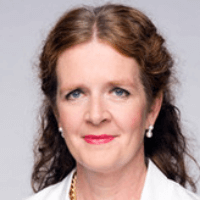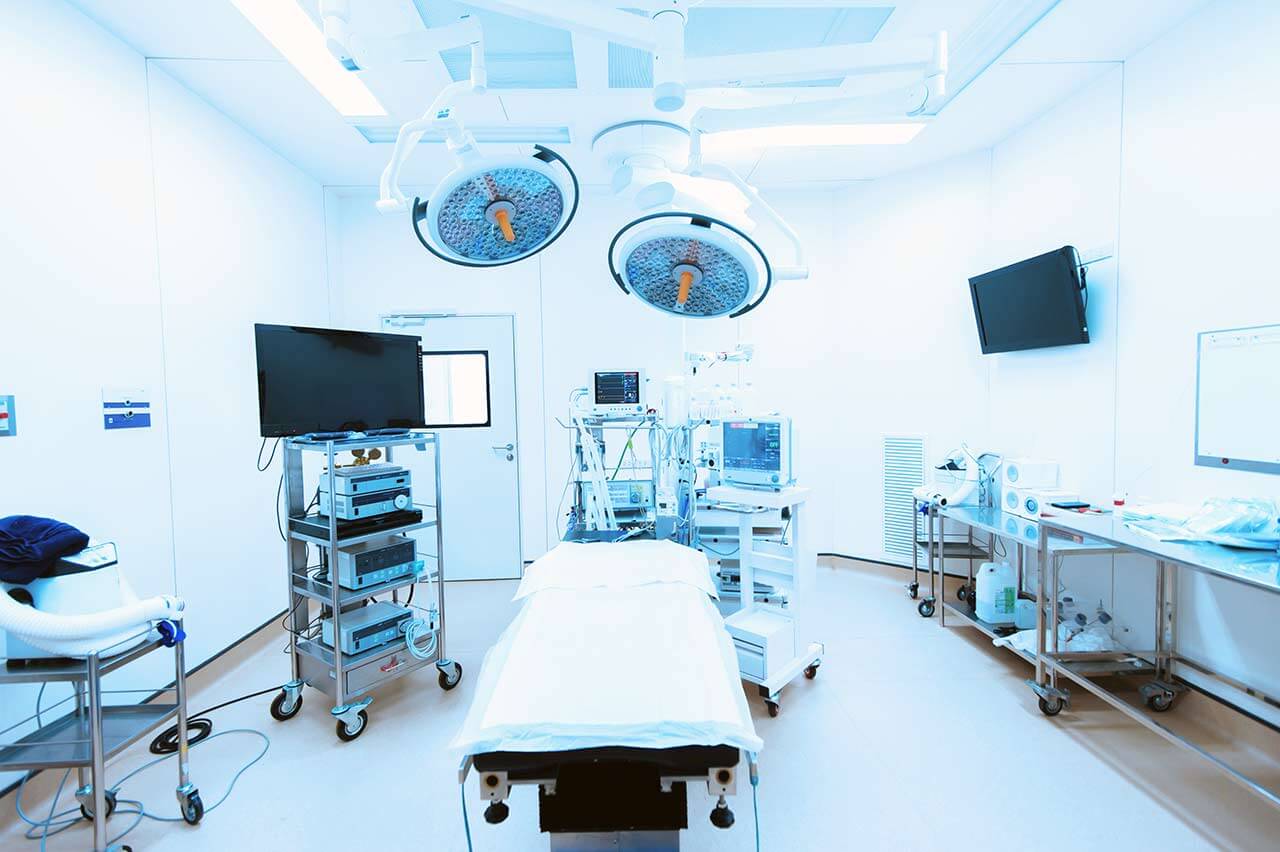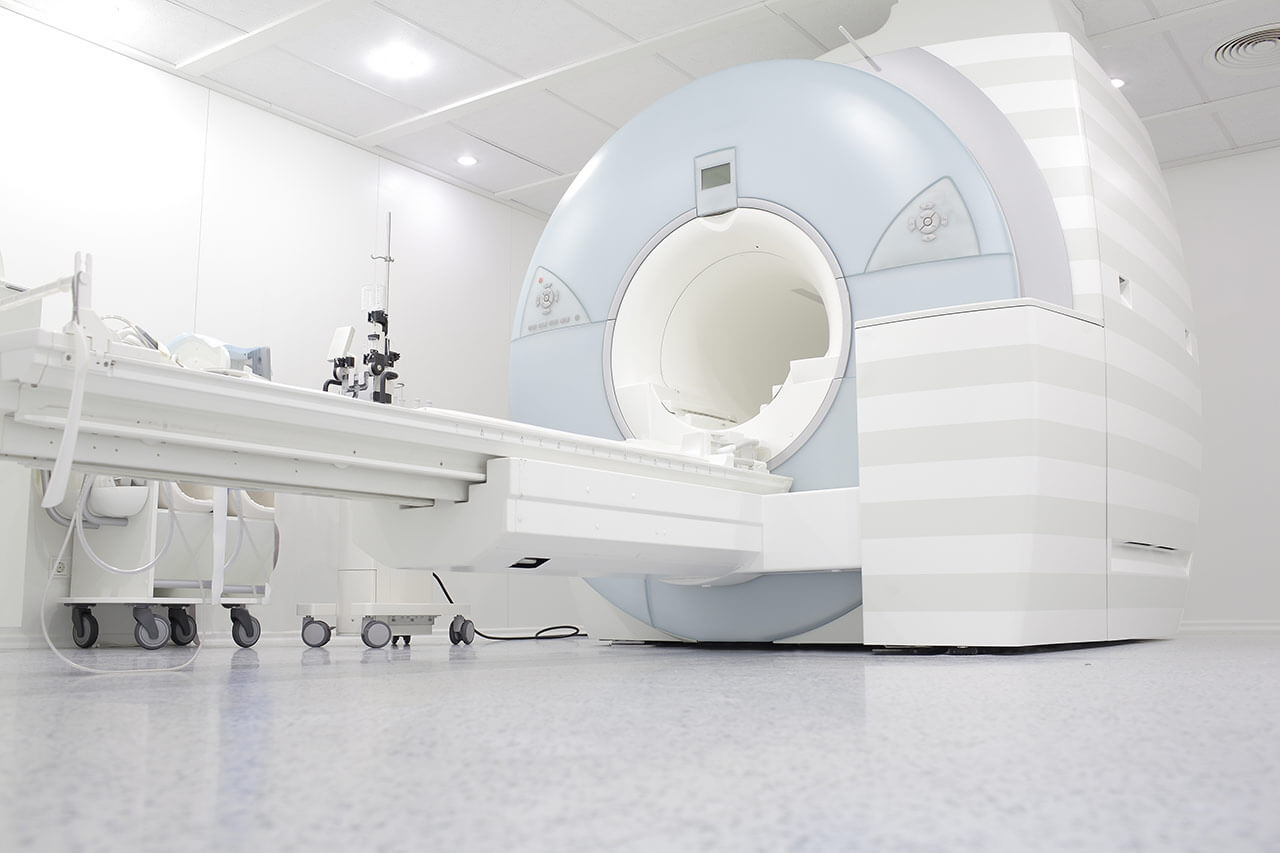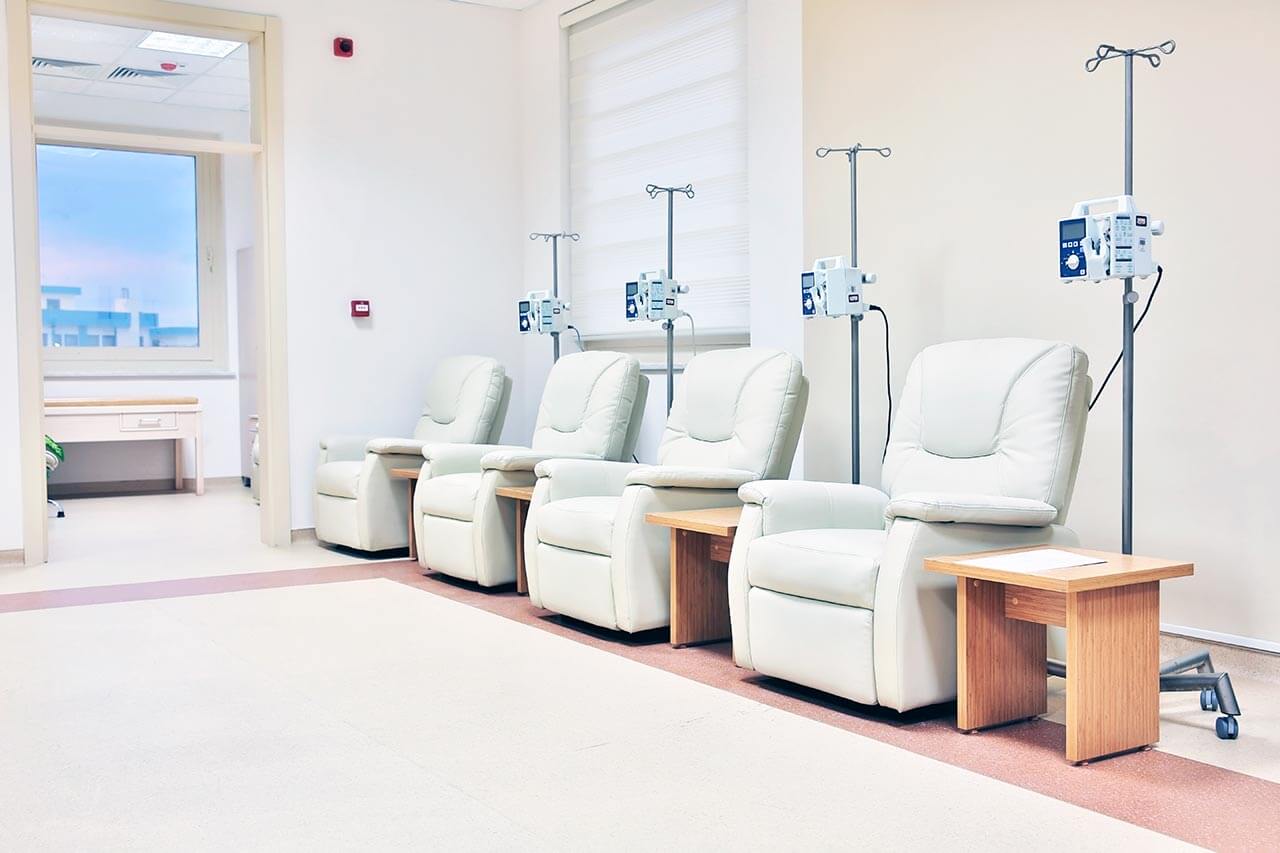
About the Department of Neurology and Epileptology at Hospital Nordwest Frankfurt am Main
The Department of Neurology and Epileptology at the Hospital Nordwest Frankfurt am Main offers all the options of modern medicine for the diagnostics and treatment of diseases of the brain and spinal cord, nerves and muscles. The team of the department's neurologists is proud of its rich and successful experience in the treatment of various neurological disorders, including especially complex ones. The focus of the department's doctors is on patients with stroke, multiple sclerosis, myasthenia gravis and epilepsy. The department specializes in conservative treatment of diseases of the nervous system. The department has a specialized Stroke Unit certified in accordance with the requirements of the German Stroke Society. The Stroke Unit has 7 beds equipped with state-of-the-art monitoring systems to control vital signs in stroke patients. In addition, the department operates a Neurological Intensive Care Unit. The patients can receive medical care both on an inpatient and outpatient basis. The department is known as one of the best Neurology Centers throughout Germany. The department is headed by Prof. Dr. med. Uta Meyding-Lamadé.
The department is certified as the Multiple Sclerosis Center, and therefore it can offer its patients the highest quality treatment for this complex neurological disorder. As of today, there are no therapeutic methods that could completely cure multiple sclerosis, but the department's specialists successfully use modern treatments to control pathology and prevent disability. It is worth noting that the disease usually affects young people. State-of-the-art diagnostic equipment available in the department allows the doctors to detect multiple sclerosis at the very early stages. The diagnostic protocol for suspected disease includes clinical examination, recording of evoked potentials, lumbar puncture, magnetic resonance imaging of the brain and spinal cord. To treat multiple sclerosis, the department's neurologists use only the most modern drugs, which have proven their effectiveness. The selection of drugs depends on the goals of therapy. These may be the treatment of pathology exacerbation, prevention of disease progression and disability, as well as symptom relief. When planning a treatment regimen, the department's doctors always take into account the patient's age, the presence or absence of concomitant diseases, and other important factors. Symptom relief involves the use of such supportive methods as physiotherapy, occupational therapy, speech therapy, psychotherapy and neuropsychological therapy.
The treatment of epilepsy is also one of the priority areas of the department's medical team. This neurological disorder cannot be completely cured, so the doctors use modern pharmacotherapy to control the disease and reduce the number of epileptic seizures. During the examination, the department's specialists determine the particular type of epilepsy, after which they prescribe the most effective antiepileptic drugs to the patient. In addition to anticonvulsants, hormonal drugs can also be used. Another conservative treatment for epilepsy, which is actively used by the neurologists of the medical facility, is a ketogenic diet. It is based on consuming foods with a high fat content and limiting carbohydrates. Changing the diet allows the patient to correct metabolic processes in the body, including metabolic processes in the central nervous system.
The department's doctors are especially focused on the treatment of myasthenia gravis as well. The department has a quality certificate in the treatment of this pathology. Myasthenia gravis is a serious disease, which affects both a person's nerves and muscles. It is chronic and progresses over time. The confirmation or exclusion of the diagnosis requires laboratory diagnostics (antibody tests), electrophysiological tests, computed tomography of the thoracic organs (thymus gland) and magnetic resonance imaging of the skull bones (if clinically indicated). The treatment is mostly based on drug therapy – the intake of cholinesterase inhibitors to relieve symptoms, cortisone drugs and immunosuppressants. In rare cases, the patients with myasthenia gravis may be indicated for surgery to remove the thymus gland (usually it is a minimally invasive procedure).
The department's doctors often admit patients with infectious diseases of the nervous system. The most common of them include bacterial meningitis, tuberculous meningitis and neuroborreliosis. The treatment is based on a well-chosen complex of drugs.
The department's main clinical focuses include:
- Diagnostics and treatment of stroke (emergency medical care and follow-up monitoring)
- Diagnostics and treatment of multiple sclerosis
- Diagnostics and treatment of epilepsy
- Diagnostics and treatment of myasthenia gravis
- Diagnostics and treatment of impaired consciousness caused by the traumatic brain injuries, stroke, tumors, etc.
- Diagnostics and treatment of infectious diseases of the nervous system (for example, bacterial meningitis, tuberculous meningitis, neuroborreliosis)
- Neurological intensive care
- Other medical services
Curriculum vitae
Higher Education and Professional Career
- 2015 Head of the Institute of International Medicine and Telemedicine Frankfurt.
- 2013 - 2016 Medical Director of the Hospital Nordwest Frankfurt am Main.
- 2011 - 2013 Deputy Medical Director of the Hospital Nordwest Frankfurt am Main.
- 2011 Professor of Neurology at the University Brunei Darussalam.
- 2010 Chief Physician, Stroke Rehabilitation Center, Brunei Darussalam.
- 2010 Appointed as Member of the Drug Commission of the German Medical Association.
- 2007 Chief Physician, Stroke Unit, Hospital Hofheim am Taunus.
- 2005 Chief Physician of the Department of Neurology and Epileptology at the Hospital Nordwest Frankfurt am Main.
- 2005 Additional qualification in Neurological Intensive Care.
- 2005 Professor of Neurology at the Heidelberg University.
- 2003 Additional qualification in Quality Management in Healthcare.
- 2003 Managing Senior Physician.
- 2000 Habilitation. Subject: "In vivo studies of the pathogenesis of encephalitis caused by herpes simplex virus".
- 2000 Senior Physician in the Department of Neurology at the University Hospital Heidelberg.
- 2000 Chief Physician of the Polyclinic of Neurology at the University Hospital Heidelberg.
- 1999 Board certification in Neurology.
- 1997 Additional qualification in Emergency Care.
- 1992 - 1999 Assistant Physician in the Department of Neurology at the University Hospital Heidelberg.
- 1991 Doctoral thesis defense in medicine and admission to medical practice.
- 1989 - 1992 Intern and then Assistant Physician in the Department of Neuroradiology at the University Hospital Heidelberg.
- 1982 - 1989 Study of Human Medicine, Heidelberg University (Germany), Institute of Neurology, University of Glasgow (UK), University of Memphis, Tennessee (USA) – scholarship of the German Academic Exchange Service (DAAD).
Teaching Career
- Regular teaching activities in the Department of Neurology at the University Hospital Heidelberg.
- Practical training for students at the University Hospital Heidelberg.
- Teacher of the Heicumed program (Neurology).
- Lecture "Selected topics in Neurology" for student trainees at the University Hospital Heidelberg.
- General Clinical Research Course, Introductory Clinical Medicine Course, Neurology Course for Medical Students.
- Examinator at the Medical Association of the State of Hesse, Intensive Care in Neurology.
- Regular teaching activities at the University Brunei Darussalam.
- Regular teaching activities at the Medical Association of the State of Hesse.
- Regular review of writings for numerous national and international journals.
- Regular reviewer of research protocols, research funding at the Heidelberg University, German-Israeli funding programs.
Clinical Interests
- Neurological intensive care.
- Multiple sclerosis.
- Neuroimmunology.
- Infectious diseases of the nervous system.
Scholarships, Prizes, Awards and Other Honors
- Badge of Honour of the City of Frankfurt am Main.
- Telemedicine Prize of the German Society of Telemedicine.
- Noble Title of the Sultan of Brunei.
- 1995 - 1996 Annual Scholarship of the German Academic Exchange Service (DAAD), University of Glasgow, UK.
- 1987 - 1988 Internship at the Institute of Neurology, UK.
- 1998 - 2000 Grant from the University of Heidelberg.
- 1988 Annual Scholarship of the University of Tennessee Health Science Center, Memphis, USA.
- 1988 Scholarship of the German Academic Exchange Service (DAAD).
- 1994 First Prize for Research in Clinical Virology awarded by the German Society for Virology, Annual Meeting of the German Society for Virology.
- 1996 Poster Award at the Annual Meeting of the German Neurological Society, Göttingen.
- 1997 Poster Award at the Annual Meeting of the German Neurological Society, Dresden.
- 1999 Poster Award at the Annual Meeting of the German Working Group on Neurological Intensive Care, Karlsruhe.
- 2000 Experimental Poster Award on Herpetic Encephalitis.
- September 2002 Braunstiftung Foundation Prize.
- 2001 First Poster Prize.
Memberships in Professional Societies
- Head of the Commission for the Development of Clinical Guidelines of the German Neurological Society (viral meningoencephalitis).
- German Neurological Society.
- Working Group on Neurological Intensive Care.
- European Neurological Society.
- Working Group on Multiple Sclerosis.
- Professional Association of German Neurologists.
- German Society for Clinical Neurophysiology and Functional Imaging.
- German Stroke Foundation (Regional Representative in Frankfurt).
- Scientific Advisory Board of the German Multiple Sclerosis Society.
- Working Group on Stroke, Organization for Healthcare Quality Management of the State of Hesse.
- Committee for Multiple Sclerosis Treatment with Immunomodulatory Drugs.
- International Scientific Working Group on the Tick-Borne Encephalitis.
- German National Commission for Poliomyelitis, Robert Koch Institute.
- Commission on Drug Policy of the German Medical Association (Extraordinary Member).
Photo of the doctor: (c) Krankenhaus Nordwest





